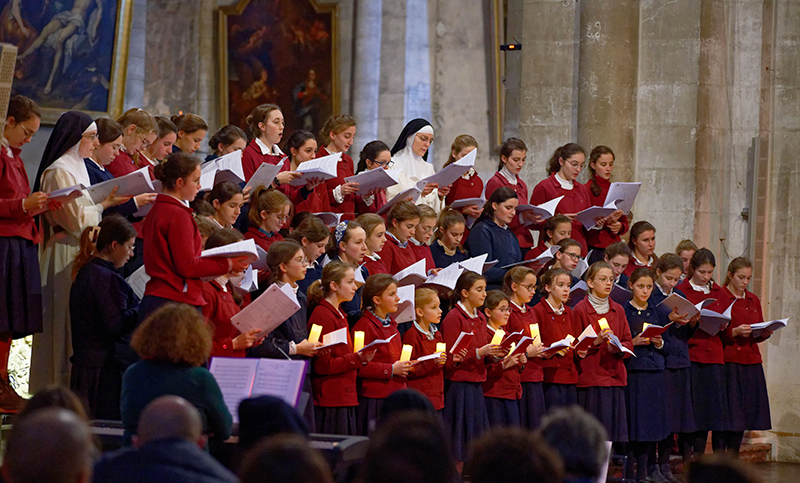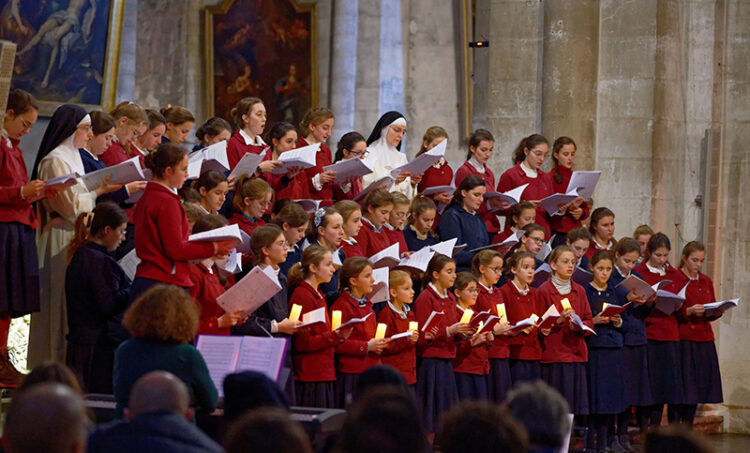(Ephesians 5:8)
Parents, leaders, and educators, we have a mission, a duty to lead children's souls toward the Light which will be their guide and their happiness. In order to illuminate the way that lies before each one of us, once a week we invite you to discover some of the words of certain wisemen and witnesses, measuring their worth by the words of St. Thomas Aquinas: “Do not consider the one who speaks, but whatever good you hear from him, confide it to your memory.” (from The Sixteen Ways to Acquire the Treasure of Knowledge by St. Thomas). Happy reading!

This morning we looked for him, at the far end of the valley where the paper mills are, and they told us that he was in the mountains just like every Saturday, at the old convent, the school for little girls. The road was very steep, and it zigzagged back and forth… I can still see it, there on its terrace, the massive convent which was so strangely silent, like a balcony in the void. Not a single sound. Pushing open the door I randomly found Henri Charlier standing there, book in hand, before two dozen little girls, explaining to them the Divine Office of the next morning which was Sunday… for it is there, in the parish, that the great texts are to be found which say it all, according to the cycle of the year. And this is what we have to hold on to, the very reality of the book describing its year, the book which is made for everyone… At the back of the little room, in this school lost so high in the mists, I found him, a peasant again, returning to natural knowledge and to the Source, teaching the liturgy in this way to twenty-four little village girls. There was nothing surprising about it, really. To give villagers back the elements of culture once provided by the Church, to give them back their customs of song and dance, Henri Charlier had for a quarter of a century taken on the role of singing teacher in the village school. He could well have been a professor of theology. And I believe that he is more than a simple professor, he really is a theologian.
Henri Pourrat (1887-1959)
Writer
“The liturgy has put together a dramatic order of the recitation of the Passion, sung four times during Holy Week, according to each of the Evangelists, as perfect as that of any Greek drama. There are two principle actors: the narrator and Christ; there is a third role, that of the Jews, which is taken on by the Schola, or better yet by the faithful present at the Sacred Liturgy. Each role has its own range: the narrator sings in a middle range, Christ in a low range, and the Synagogue in an upper range. There are thus three melodic lines, each phrase of the text adapting itself according to its own rhythm to the melody that has been set once and for all. For a musician seeking the picturesque, the scenes of the Passion offer many pretexts: the arrest in the Garden of Olives, the interrogation before the High Priest, with the crowd of servants with Peter among them, the scene in the Praetorium and the dialogue with Pilate… Said musician could easily suggest the general upheaval at the sounding of the ninth hour. The Gregorian musician, however, privileged a simple recitation on three melodic lines, but the relationship between these three lines is so precisely chosen that the whole essence of the great drama of the Redemption is expressed, so what does he care for the rest? Everything is there. After this dramatic recitation of the Passion, the reading is completed with the tone of the Gospel, and for this last part, an admirable melody begins each phrase with an astonishing vocalization on the first syllable, similar to those great ornate capital letters found in old manuscripts, and the musician’s art was to find the cadence whose descent was in just the right proportion to the initial elan. I know of nothing in music that gives a greater sense of achieved perfection.”
André Charlier (1895-1971)
Professor, headmaster of the École de Roches, then headmaster of Maslacq, writer
In the same category « Teaching », also read :

